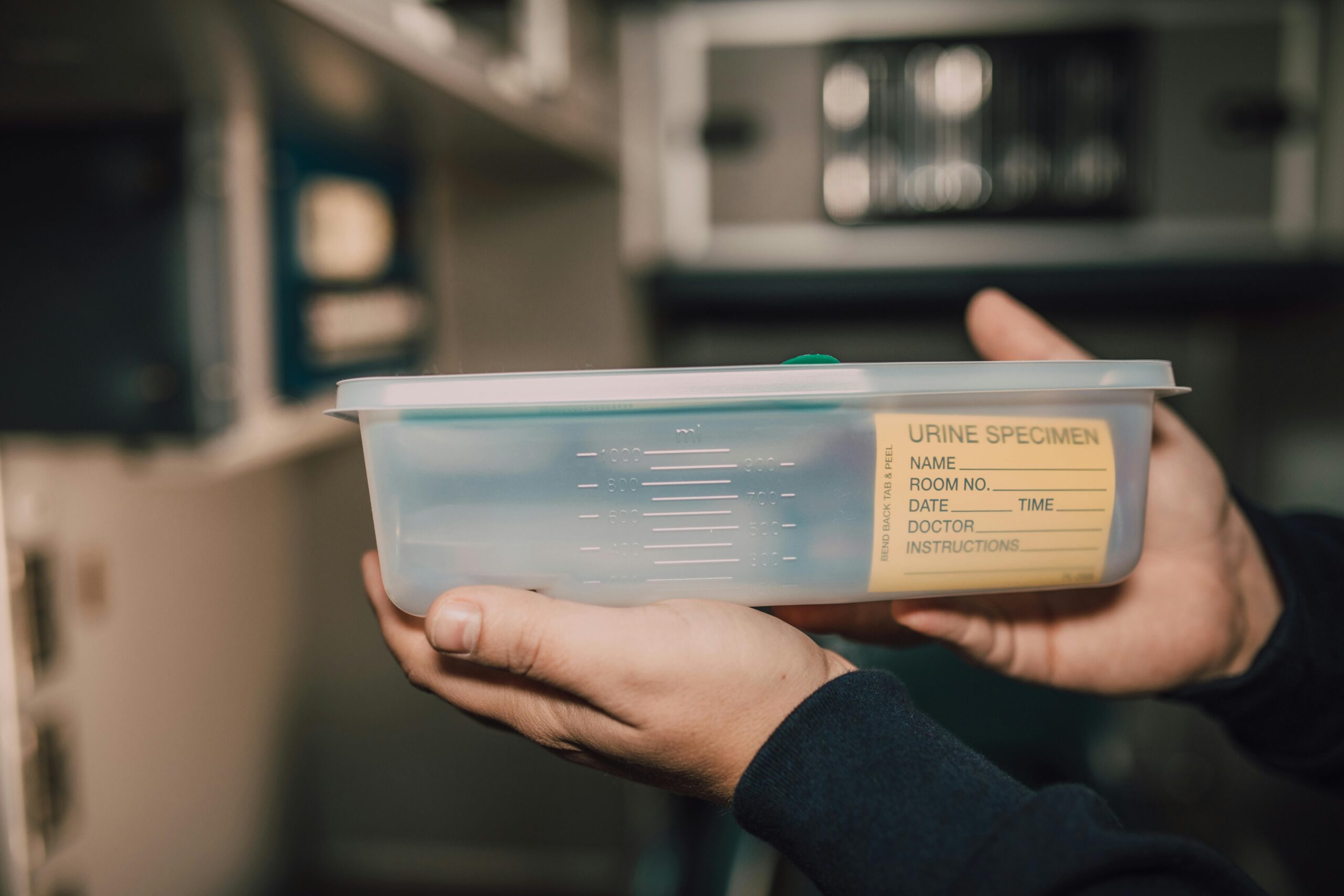Schwarzer Urin
Schwarzer Urin, also known as dark urine, can be a concerning symptom for many individuals. The color of urine can vary significantly due to various factors, including diet, hydration, medications, and underlying health conditions. Recognizing the potential causes of **schwarzer urin** is essential for addressing any health issues that may be present.
Understanding the Causes of Schwarzer Urin
Dark urine can result from various factors, ranging from benign to serious causes. One primary reason for **schwarzer urin** is dehydration. When the body lacks enough fluids, the urine concentration increases, causing it to appear darker. Foods such as blackberries and beets can also contribute to the darkening of urine. Medications, such as certain antibiotics or laxatives, may lead to changes in urine color as well. Additionally, medical conditions, including liver disease, hematuria, or blood disorders, may result in darker urine. It’s crucial to differentiate between these causes to seek appropriate medical advice.
Dehydration and Its Impact on Urine Color
Dehydration is a common cause of **schwarzer urin**. When the body does not receive enough water, the kidneys concentrate the urine, which can lead to a darker appearance. To combat dehydration, it is essential to consume an adequate amount of fluids daily, particularly during hot weather or after physical activity. For instance, if an individual engages in strenuous exercise without replenishing fluids, they may notice their urine turning darker the following day. Maintaining proper hydration not only keeps urine color normal but also supports overall bodily functions.
Dietary Influences on Urine Color
Certain foods can significantly alter the color of urine. Foods such as beets, blackberries, and even some artificial food dyes can cause **schwarzer urin**. For example, beets contain a pigment called betalain, which can result in pink or reddish urine. To determine whether dietary choices are affecting urine color, it may be beneficial to keep a food diary tracking the consumption of such foods and noting any changes in urine appearance. If someone’s darker urine persists despite dietary adjustments, it may be time to consult a healthcare professional.
Medical Conditions Linked to Dark Urine
While many cases of **schwarzer urin** can result from harmless factors, it’s crucial to consider potential underlying medical conditions. For instance, liver issues, such as hepatitis or cirrhosis, can lead to bilirubin buildup in the urine, causing darker urine. Hematuria, or blood in the urine, is another serious condition that can manifest as dark-colored urine. If an individual experiences additional symptoms, such as abdominal pain, jaundice, or unusual fatigue, it’s essential to seek medical attention promptly. Understanding these medical implications can help in timely diagnosis and treatment.
How to Address Schwarzer Urin
If you notice changes in your urine color, taking certain steps can help determine the cause and address any potential issues. Initially, increasing fluid intake is the first line of action. If the condition persists, keep a log of dietary intake and any medications currently being taken. This data can be invaluable during a consultation with a healthcare provider, who may recommend blood tests, urine analysis, or imaging studies to explore any underlying conditions further.
Self-Care Measures for Dark Urine
Adopting self-care measures can significantly improve overall health and help resolve issues related to **schwarzer urin**. Staying hydrated is the key factor; aim for at least eight 8-ounce glasses of water daily, increasing the amount if engaging in strenuous physical activity. Additionally, maintaining a balanced diet rich in fruits and vegetables can support kidney function and overall wellness. If you notice persistent dark urine despite these efforts, consider keeping an eye on your urinary habits and consult a healthcare professional if needed.
When to Seek Medical Assistance
It’s important to know when to seek medical attention for **schwarzer urin**. If dark urine is accompanied by other symptoms such as fever, chills, abdominal pain, nausea, or jaundice, immediate medical evaluation is necessary. These symptoms may indicate more serious health concerns, such as liver disease or a urinary tract infection. Regular health check-ups and discussions with a doctor about any lingering symptoms contribute to proactive health management and early detection of potential issues.
Preventing Dark Urine: Lifestyle Adjustments
Preventing the occurrence of **schwarzer urin** may involve several lifestyle adjustments. Staying adequately hydrated, being mindful of dietary choices, and understanding the effects of medications can play a vital role. Additionally, practicing regular physical activity and avoiding excessive alcohol consumption can support urinary health. Implementing these changes not only enhances overall wellbeing but also aids in maintaining normal urine color.
Hydration: The Key to Healthy Urine
Proper hydration is crucial in preventing **schwarzer urin**. Individuals should aim to consume a variety of fluids throughout the day, including water, herbal teas, and other non-caffeinated beverages. Carrying a reusable water bottle as a reminder to drink can be a simple yet effective strategy. When aware of one’s fluid intake and ensuring it is consistent, the chances of experiencing dark urine decrease significantly.
Impact of Medications on Urine Color
It is also important to recognize the role medications can play in urine color changes. Several medications can contribute to dark urine, including certain antibiotics and supplements such as B vitamins. Patients should consult with their healthcare provider regarding potential side effects, especially if they notice significant changes in urine color after starting a new medication. Understanding these effects can better inform users and ensure awareness of any necessary adjustments.
Key Takeaways
- Schwarzer urin can result from dehydration, dietary choices, or underlying health issues.
- Increasing fluid intake and being mindful of foods can help mitigate symptoms.
- Consulting a healthcare provider is essential if dark urine persists or is accompanied by other symptoms.
- Regular hydration, balanced diet, and health monitoring are key to preventing dark urine.
FAQ
1. Was versteht man unter schwarzem Urin?
**Schwarzer urin** ist ein Ausdruck, der die dunkle Färbung des Urins beschreibt, was durch verschiedene Faktoren verursacht werden kann, darunter Dehydration, Ernährung und medizinische Bedingungen. Die Farbänderung kann einige Hinweise darauf geben, wie gut der Körper funktioniert und ob gesundheitliche Probleme vorliegen.
2. Was könnte dunklen Urin verursachen?
Dunkler Urin kann durch Dehydration, eine unzureichende Flüssigkeitsaufnahme, den Verzehr bestimmter Nahrungsmittel oder sogar durch bestimmte Medikamente verursacht werden. In einigen Fällen kann er auch auf schwerwiegende Gesundheitsprobleme wie Lebererkrankungen oder Nierenerkrankungen hinweisen, weshalb eine ärztliche Untersuchung ratsam ist.
3. Wann sollte ich einen Arzt aufsuchen, wenn ich schwarzen Urin habe?
Sollten Sie **schwarzer urin** zusammen mit anderen Symptomen wie Fieber, Übelkeit oder Schmerzen verspüren, sollten Sie sofort einen Arzt aufsuchen. Diese Symptome könnten auf schwerwiegende medizinische Probleme hinweisen, die eine schnelle Behandlung erfordern.
4. Wie kann ich meine Urinfarbe wieder normalisieren?
Um die Farbe des Urins zu normalisieren, sollten Sie darauf achten, ausreichend Wasser zu trinken. Beginnen Sie mit der Aufzeichnung Ihrer Flüssigkeitsaufnahme und Ihres Essverhaltens, um potenzielle Auslöser besser nachvollziehen zu können. Eine ausgewogene Ernährung kann ebenfalls helfen, die Gesundheit der Harnorgane zu unterstützen.
5. Welche Lebensmittel beeinflussen die Urinfarbe?
Lebensmittel wie Rüben, Brombeeren, und Karotten können die Urinfarbe beeinflussen und zu einem **schwarzen urin** führen. Probieren Sie, diese Nahrungsmittel zu beobachten und zu sehen, ob Änderungen in der Urinfarbe damit zusammenhängen. Wenn Sie Bedenken haben, sprechen Sie mit Ihrem Arzt, um die Ursachen zu klären.


